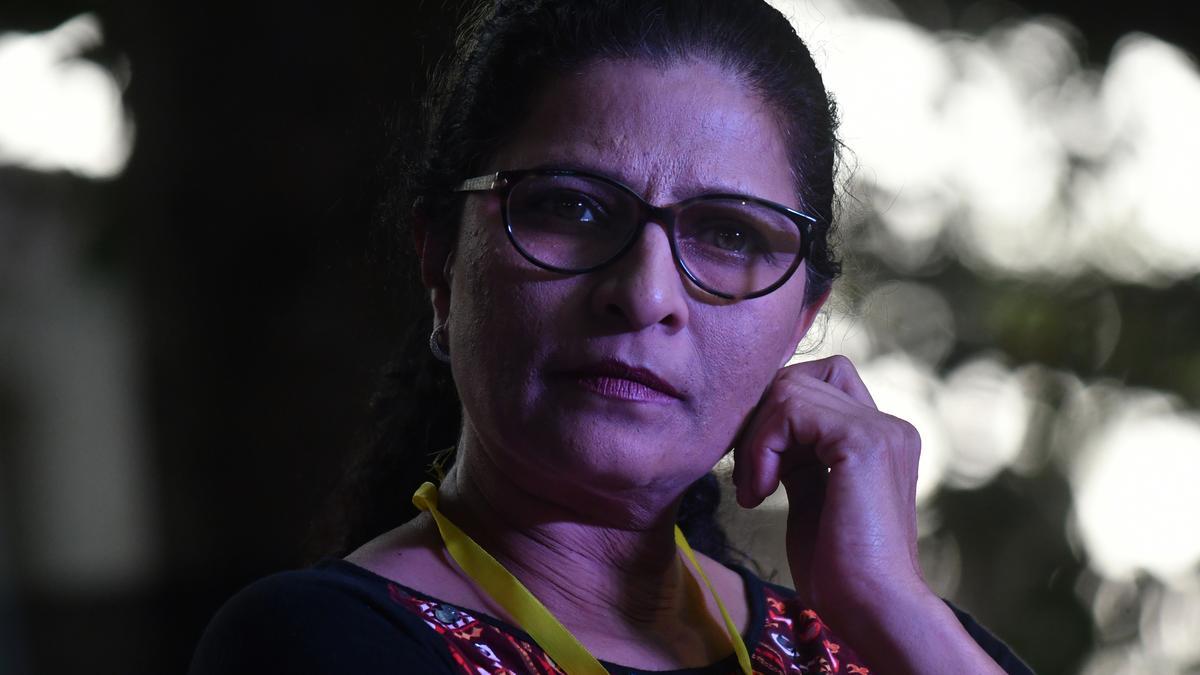
Two weeks have passed since the K Hema Committee report sent shockwaves across several Indian film industries, bringing to light the serious issue of sexual harassment. In response, members from the Kannada film industry (KFI) have taken decisive steps to address this pressing concern. Following actor Sruthi Hariharan’s call for a panel in Sandalwood similar to the Hema Committee, members of Film Industry For Rights and Equality (FIRE) have urged the Karnataka government to establish a committee led by a retired judge to investigate and report on the issues faced by women, including sexual harassment in the industry.
FIRE, formed during the #MeToo movement in 2018 after Sruthi accused actor Arjun Sarja of sexual harassment, is committed to combating sexual harassment and the casting couch in the film industry. The organization operates under the Societies Act and is spearheaded by filmmaker Kavita Lankesh as the president, with actor Chetan Ahimsa serving as the secretary.
On Wednesday, September 04, 2024, FIRE submitted an official letter to Chief Minister Siddaramaiah, demanding comprehensive measures to create a safe and equitable working environment for all women in the industry. The letter was backed by a 153-member panel, which includes prominent names such as actors Sudeep, Ramya, Kishore, Vinay Rajkumar, Sruthi Hariharan, Shraddha Srinath, Pooja Gandhi, Aindrita Ray, Diganth Manchale, Chaitra J Achar, and Samyukta Hegde, along with filmmakers B Suresha, Mansore, Jayatheertha, K M Chaitanya, and Pawan Kumar.
“Women have faced harassment in the film industry from time immemorial,” said Kavitha. “Those who were not cooperative to the whims and fancies of influential people were thrown out of the industry. Women who question injustice face the danger of losing opportunities. That’s what happened with Sruthi as well,” she explained.
In 2018, Sruthi alleged that actor Arjun Sarja had sexually harassed her. Despite her courageous stand, three years later, the investigation was closed by the police due to a ‘lack of evidence’. Reflecting on this and other similar cases, Kavitha said, “Women have complained in the past, but industry bigwigs have quietened them down. Some female artistes get into legal battles that get dragged for ages, and their careers take a hit.”
FIRE has called for a thorough investigation into the systemic issues faced by women in KFI, including sexual harassment. The body has also advocated for developing policies to ensure a healthy and equitable work environment for women in the industry. The letter recommends appointing a retired judge of the High Court or Supreme Court, noted for their commitment to gender justice, to head the committee.
. FIRE is pressing for immediate action from the government regarding the problems faced by women in the film industry.
Allegations of sexual harassment by several women have recently brought turmoil to the Malayalam film industry as well. Notable artistes from the Tamil, Telugu, and Hindi film industries have also reacted to these controversies, emphasizing the dire need for a safer work environment for female artistes. Cinematographer Preetha Jayaraman, who has extensively worked in the Kannada film industry, has spoken out against the misuse of power by those in authoritative positions.
Preetha, a member of FIRE, stated, “Even though I have always worked in professional film sets with the availability of all basic needs for women, one can’t deny the fact that there is a big harassment factor when it comes to actresses and junior artistes. Most of them in the industry know how production executives treat actresses and where the mistakes happen. People in positions of power exploit those daily wage laborers in the film industry. We must have zero tolerance towards unfair expectations from women.”
Author and screenwriter Sandhya Rani has also weighed in on the issue, noting, “The harassment faced by women in the film industry was a known truth. It was the elephant in the room. Only after the Hema Committee report has there been an open discussion on the problem. Women in the film industry are vulnerable because a film set doesn’t function with fixed timing and guidelines. Men in strong positions make rules that work in their favor even if they cross the line. That’s why you see those accused continuing to receive work while those who question them get sidelined by the industry,” she added.
Kavitha emphasized the need to treat everyone equally on a film set. “I have heard stories of women asked to work for long hours even during their periods. How you treat women and junior artistes defines how safe your film set is,” she declared. It is evident that the Hema Committee report has reignited a vital conversation within the Kannada film industry, leading to a significant push for change and accountability.












